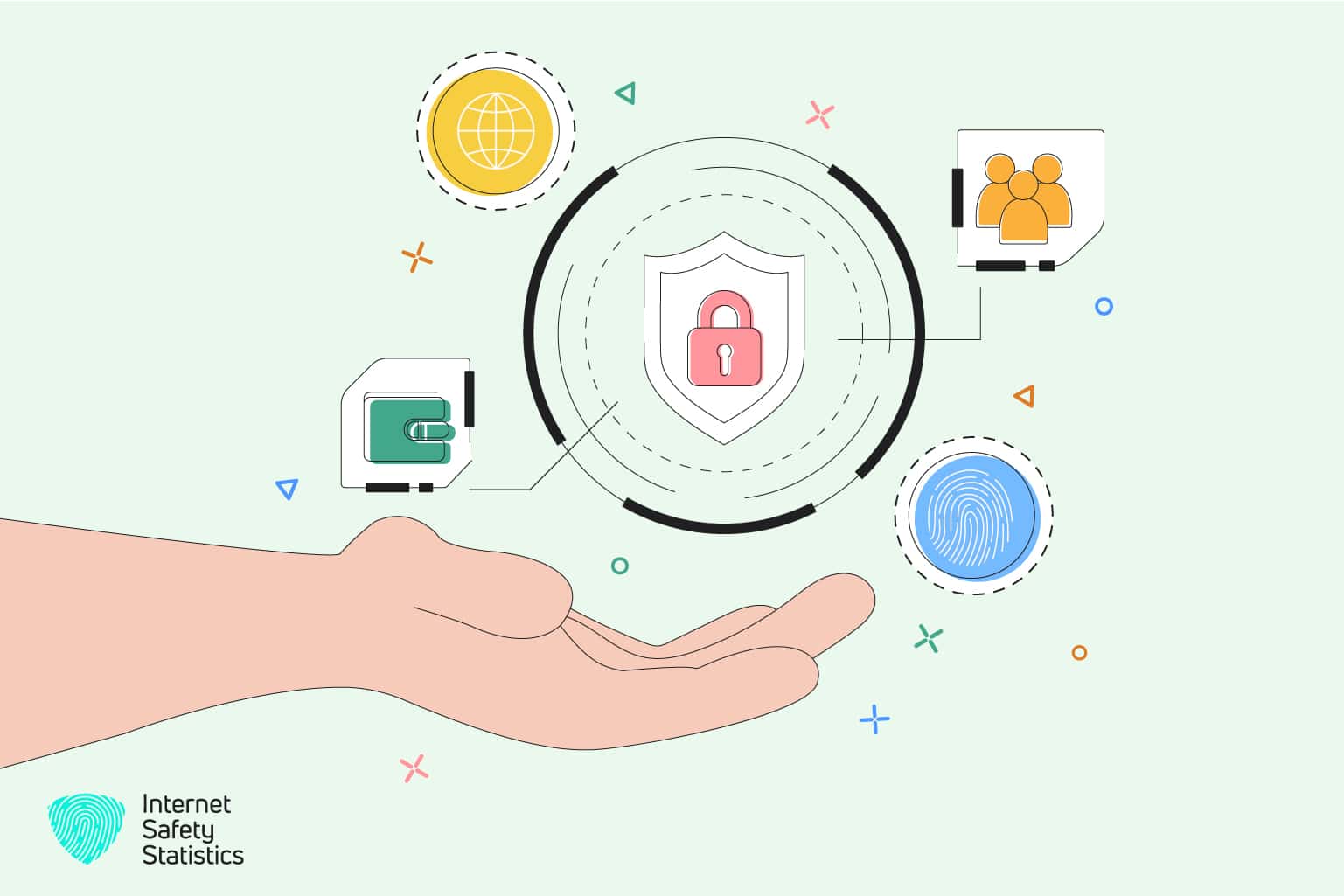
In an increasingly connected digital world where every aspect of our lives, businesses, and governments becomes virtually intertwined with technology, the importance of cybersecurity has never been more pronounced. As we unlock the immense potential of the digital landscape, we also open the door to a host of cyberthreats and vulnerabilities. Consequently, cybersecurity has moved from the sidelines to the forefront, becoming vital to global security and business strategy.
Is a Master’s in Cybersecurity Worth It?
Cyber threats’ escalating frequency and sophistication have triggered an unprecedented demand for skilled cybersecurity professionals. According to the (ISC)² Cybersecurity Workforce Study, the world is nearly 4 million cybersecurity professionals short, highlighting a critical talent gap that needs to be filled urgently. This stark reality underscores the rising value and demand for advanced education in cybersecurity.
Recognising this need, numerous esteemed institutions worldwide now offer comprehensive cybersecurity masters programs and graduate certificates. These programs are designed to equip professionals with a robust understanding of the cyber threat landscape and arm them with the necessary technical, strategic, and management skills to combat these threats. In short, a master’s degree can often lead to senior or leadership roles in cybersecurity, such as a security manager or a chief information security officer (CISO).

Online cybersecurity masters programs have been game-changers, making this high-demand education more accessible and flexible than ever. In today’s demanding and often unpredictable world, the ability to learn at one’s own pace while maintaining other life commitments has made online programs increasingly popular.
This article will guide you through the best cybersecurity masters programs, providing a detailed overview and comparative analysis of each program. We will delve into key aspects such as curriculum focus, cost, and unique program features. By the end, you will better understand what each program offers and determine which one aligns best with your career aspirations and personal circumstances.
So, What Are the Best Cybersecurity Masters Programs?
There are many excellent master’s and graduate certificate programs in cybersecurity. In the following lines, we explore the top five cybersecurity masters programs and graduate certificates worldwide. We will discuss each program in detail to help you make an informed decision for your future in this dynamic and critical field.
1. Georgetown University’s Graduate Certificate and Master’s in Cybersecurity Risk Management
Georgetown University’s online graduate certificate in Cybersecurity Risk Management equips students to handle cyber threats effectively. This interdisciplinary program blends ethics, management, law, and computer science, using advanced tools like applied intelligence and machine learning.
This program allows students to gain hands-on experience by analysing real-time data, collaborating on international projects, and devising security strategies. The program also explores disruptive tech’s impact on organisations, teaching students to implement agile solutions. This digital, adaptable structure perfectly suits individuals already in the workforce.
Upon graduation, students are skilled in designing fortified systems and implementing novel strategies, including cloud computing and security architecture. Therefore, they become invaluable contributors to the field of cybersecurity.
Areas of Study
Georgetown University’s graduate certificate in Cybersecurity Risk Management curriculum consists of four carefully designed courses, equating to 12 credits in total. These courses cover a broad range of key areas in cybersecurity. Students can choose from:
- Ethics in Cybersecurity: An exploration of ethical considerations in the cybersecurity field.
- Information Security: A study of strategies and techniques for protecting information.
- Cybersecurity Governance Frameworks: A look into the frameworks for governing cybersecurity practices.
- Information Assurance & Risk Management: An examination of how to ensure information security and manage related risks.
- Security Architecture & Design: A course on designing and implementing secure systems.
- Information Security Laws & Regulatory Compliance: A review of relevant laws and the importance of regulatory compliance in cybersecurity.
- Communication Strategy for Information Security Professionals: A course to develop effective communication strategies in a cybersecurity context.
- Disruptive Technology & Organisational Change: A study of how disruptive technologies impact organisations and induce change.
Once these 12 credits are completed, students have the opportunity to apply them towards the 33-credit Master’s in Cybersecurity Risk Management.
Tuition Fees
The total tuition for the graduate certificate is $18,324 (approximately €16,507). However, the master’s total tuition is $50,391 (approximately €45,394).
2. Johns Hopkins University’s Online Master’s in Cybersecurity
Johns Hopkins University offers a highly-rated online, part-time Master’s in Cybersecurity that focuses on protecting data confidentiality, integrity, and availability. With coursework designed by industry experts, it is designed to increase your marketability and enable you to assess a corporation’s security risks effectively.
This program boasts cutting-edge computing resources and digital learning environments, delivering coursework on the most recent methodologies in cybersecurity. This includes subjects like security engineering, practical machine learning, and analysis of reverse engineering and vulnerabilities. At the end of the program, students have the unique opportunity to complete a capstone project or conduct innovative research.
Areas of Study
Johns Hopkins University’s Online Master’s in Cybersecurity offers six focus areas:
- Analysis: Understanding security issues such as forensic patterns and ethical hacking techniques.
- Assured Autonomy: Studying the complexities in autonomous systems and the approaches necessary for the learning-enabled cyber-physical systems (LE-CPSs).
- Cyber Operations: Focusing on achieving objectives in or through cyberspace, including defending cyber systems.
- Networks: Exploring the security of various networks, from clouds and protocols to data communications and the internet.
- Space Cyber: Investigating how to identify and mitigate cyber threats to space systems through a comprehensive engineering approach.
- Systems: Examining the security of computing devices, including secure system designs and authentication solutions.
Tuition Fees
Johns Hopkins University calculates tuition per course, typically requiring ten courses for graduate degrees and five, sometimes four, courses for certifications. After the dean’s support for graduate-level (600-level and higher) courses in the 2023-2024 academic year, the per-course tuition is $5,090 (approximately €4576). Students should contact the Student Enrollment and Account Management (SEAM) for detailed information regarding tuition, payments, or financial holds.
3. University of Southern California’s Master of Science in Cybersecurity Engineering
USC’s Cybersecurity Engineering is also among the world’s best cybersecurity masters programs. It emphasises the development and operation of secure information systems. The degree can be earned offline or online through DEN@Viterbi programs.
The program’s curriculum explores security policy development, secure operating systems, applications, networking, cryptography, and key management. It is ideal for graduates aiming for careers in computer network operations or those wishing to enhance their knowledge in information security.
Areas of Study
USC’s Cybersecurity Engineering Master’s program equips students with core skills in developing, engineering, and operating secure information systems. They gain proficiency in managing secure operating systems, applications, networking, database security and privacy, cryptography, and key management.
The program’s significant focus lies in the following:
- Understanding how security policies drive technology decisions.
- Administering high-security environments.
- Integrating asset value, threat models, and mitigation strategies with the core organisational mission.
It also illuminates the factors behind the success or failure of information security plans.
Tuition and Fees
The per-unit tuition for the 2023 – 2024 academic year is $2,424 (approximately €2,177), considering that the program requires a minimum of 28 units for graduation.
4. Stanford University Cybersecurity Graduate Certificates and Master’s Program
Stanford University also offers one of the top cybersecurity master’s programs in the world. This program merges professional, technical, and policy perspectives to tackle the challenges arising from rapid advancements in information technology. It encourages an interdisciplinary approach, blending principles of computer systems security and applications to equip you for the evolving cyber workforce.
Upon successful completion of each course, students earn academic credits and Stanford University transcripts. These credits, up to 18 units, may potentially be transferred to an applicable Stanford University Master’s in cybersecurity, subject to the academic department’s approval. To earn the certificate, students are required to maintain a grade of B (3.0) or better in each course.
Areas of Study
Stanford’s Cybersecurity graduate certificate offers a comprehensive curriculum covering key focus areas in the field. Students delve into the foundational aspects of computer and network security, including an introduction to computer networking and an exploration of operating systems and systems programming.
The program delves into advanced networking topics and incorporates cutting-edge subjects like cryptocurrencies and blockchain technologies. The curriculum introduces the rapidly expanding Internet of Things (IoT) area. On top of that, it uniquely explores the intersection of technology and national security, preparing graduates to understand and address cybersecurity challenges at the national level.
Tuition and Fees
The cost per unit for each course in the program is $1,456 (approximately €1308), with each course requiring three to five units, as specified on the course enrollment pages. Besides, there is a one-time $125 fee that grants you lifelong access to your transcripts for all courses.
The program must be completed within three academic years by finishing four graduate courses. The time investment for each course is approximately 15 to 20 hours per week, considering both lectures and homework assignments. Typically, students finish the program within a span of one to two years.
5. University of California, Berkeley Cybersecurity Master’s Program
The online Master of Information and Cybersecurity (MICS) offered by the School of Information at UC Berkeley is also among the top cybersecurity masters programs. It equips students with key cybersecurity skills they need to succeed in the industry.
The program aims to prepare leaders for roles in technology companies, government, and military organisations. The curriculum takes a holistic approach, developing students’ understanding of information security technologies and cybersecurity’s economic, legal, behavioural, and ethical dimensions.
Graduates of the program hold a significant competitive edge in the employment sector. This sector is enriched by affiliations with UC Berkeley alumni and industry professionals within the technological nexus of the San Francisco Bay Area.
Areas of Study
The Master of Information and Cybersecurity (MICS) program at UC Berkeley’s School of Information provides a multidisciplinary curriculum. Students gain practical experience with secure systems and applications, understand the legal aspects of cybersecurity, and develop leadership skills to build cybersecurity solutions. The focus areas of the program include:
- Secure Coding: Teaching students how to write robust, secure software.
- Government and National Security: Examining the intersection of cybersecurity and national policy.
- Network and Web Security: Ensuring the integrity of networks and web applications.
- Usable Privacy and Security: Balancing security measures with a user-friendly design.
- Cryptography: The study of secure communication techniques.
- Operating System Security: Protecting system-level software and infrastructure.
- Security in Context: Discussing legal, behavioural, and ethical issues in cybersecurity.
- Privacy Engineering: Designing systems and applications to protect user privacy.
- Cyber Risk: Understanding and managing potential cybersecurity threats.
Tuition and Fees
UC Berkeley’s Master of Information and Cybersecurity program charges tuition fees based on the number of enrolled units per semester, along with a campus fee. The program comprises 27 units in total. A one-time Document Management Fee is charged during the first term of enrollment. Students must also account for a $500 immersion fee and are responsible for their accommodation and travel expenses during the immersion period. These fees are subject to change annually, typically effective from the fall term.
Follow Your Passion and Gain One of the Top Cybersecurity Masters Programs
As we have explored the best cybersecurity masters programs and graduate certificates, you must have become familiar with each offering a unique approach to education in this critical discipline. These programs reflect a broad range of focus areas, teaching methodologies, and practical applications that can help students develop robust, versatile skill sets tailored to their career goals.
It is worth noting that these cybersecurity masters programs are not one-size-fits-all; the best program for a given student will depend on their career aspirations, academic interests, and personal circumstances. As we move further into the digital age, the skills developed in these cybersecurity masters programs and graduate certificates will remain paramount. These skills make a master’s in cybersecurity a rewarding educational pursuit and a critical investment in our shared digital future.
